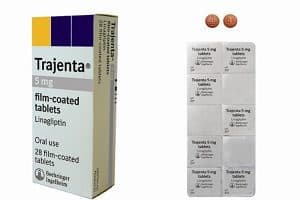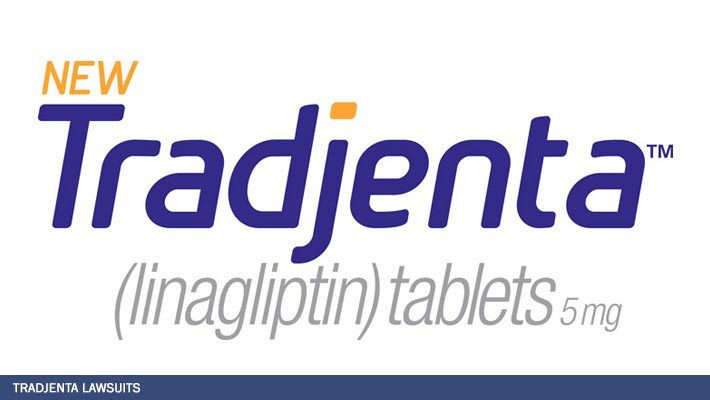
Tradjenta Risk of Pancreatic Cancer. Tradjenta (linagliptin) is a type 2 diabetes medication developed by Eli Lilly and Boehringer Ingelheim; it belongs to a class of diabetes drugs known as dipeptidyl peptidase-4 (DPP-4) inhibitors. Tradjenta was approved by the U.S. Food and Drug Administration (FDA) in May 2011. It is taken orally to control […]

Tradjenta Risk of Pancreatic Cancer. Tradjenta (linagliptin) is a type 2 diabetes medication developed by Eli Lilly and Boehringer Ingelheim; it belongs to a class of diabetes drugs known as dipeptidyl peptidase-4 (DPP-4) inhibitors. Tradjenta was approved by the U.S. Food and Drug Administration (FDA) in May 2011. It is taken orally to control blood sugar levels and can be taken as “add-on” therapy to insulin. Januvia and Byetta, drugs that have a similar mechanism to Tradjenta, have allegedly been associated with cases of pancreatic cancer. Research suggests that Tradjenta can also increase the risk of pancreatic cancer.
In May 2013, the FDA issued a Drug Safety Communication alerting the public to research findings linking incretin mimetics to a possible increased risk of pancreatitis and pancreatic duct metaplasia, which are pre-cancerous cellular changes. The unpublished findings were by a group of academic researchers who examined pancreatic tissue specimens taken from post-mortem patients. The agency said it would investigate the findings further, stating “FDA has asked the researchers to provide the methodology used to collect and study these specimens and to provide the tissue samples so the Agency can further investigate potential pancreatic toxicity associated with the incretin mimetics.”

Tradjenta stimulates cell-growth in the pancreas and some evidence suggests that this may also lead to pancreatitis, or inflammation of the pancreas. The warning label mentions the risk of pancreatitis. Pancreatitis may also increase the risk of pancreatic cancer. However, since cancer is complicated, takes many years to develop and can be influenced by multiple factors, it is harder to study.
In March 2013, a study published in Diabetes found evidence of pre-cancerous cellular changes associated with the use of incretin mimetics such as Tradjenta. Researchers found a 40 percent increased pancreatic mass in organ donors with type 2 diabetes who used incretin therapy, noting both increased exocrine cell growth and dysplasia (enlargement of organ or tissue due to abnormal cell growth). When looking at the mass of beta cells (pancreatic cell that stores and releases insulin), researchers found a 60 percent decrease with diabetes, but a 6-fold increase with incretin even though they continued to have diabetes. The researchers looked at patients with diabetes who took incretin therapy, those with diabetes who used a different therapy and non-diabetic controls.
Out of 8 patients treated with incretin therapy, three had adenomas in the pancreas. Adenomas are benign tumors composed of glandular tissue. Although they are not cancerous, they can still lead to complications because they need to be surgically removed. The authors note, “Since the standard of care of a pancreatic neuroendocrine tumor, because the risk of conversion to malignancy, even if benign, is surgical resection , patients exposed to incretin therapy would seem to be at increased risk of requiring pancreatic surgery.”
The authors wrote “In conclusion, in humans, incretin therapy resulted in a marked expansion of the exocrine and endocrine pancreatic compartments, the former being accompanied by increased proliferation and dysplasia, the latter by α cell hyperplasia with the potential for evolution into neuroendocrine tumors.” FDA Warns that Tradjenta May Cause Severe Joint Pain In August 2015, the FDA warned that Tradjenta and other DPP-4 inhibitors may cause “severe and disabling” joint pain. This information was added to the drug label. The FDA advised patients to not stop their medication, but contact their healthcare professional immediately if they experience persistent and severe joint pain. The agency said it identified cases of severe joint pain associated with DPP-4 inhibitors through a search of its Adverse Event Reporting System (FAERS) database and a review of the medical literature. According to the Drug Safety Communication, symptoms appeared from 1 day to years after starting therapy with the DPP-4 inhibitor. The symptoms were generally relieved after stopping the medication. In some cases, the pain returned when the patient started the same medication or a different DPP-4 inhibitor.
A federal multidistrict litigation (MDL No. 2452) has been established for incretin mimetic drugs in California. More than 750 have been consolidated so far; plaintiffs allege that incretin mimetic diabetes drugs caused pancreatic side effects and that drug makers failed to warn about the risks. The drugs named in these lawsuits are similar to Tradjenta.
An MDL makes complex litigation more efficient by streamlining lawsuits with common allegations before one court and one judge.
The personal injury attorneys at Parker Waichman LLP offer free, no-obligation case evaluations. For more information, fill out our online contact form or call 1-800-YOURLAWYER (1-800-968-7529).


